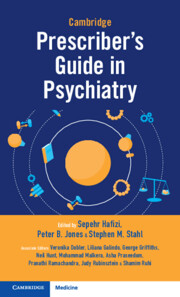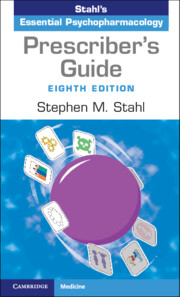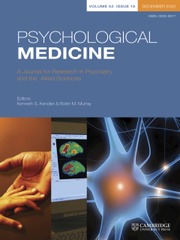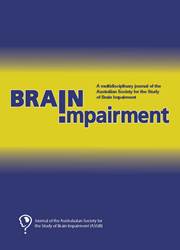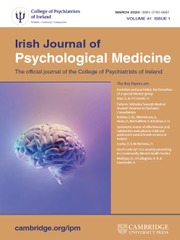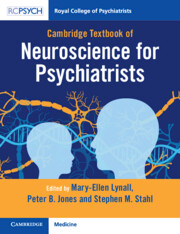Cambridge Prescriber's Guide in Psychiatry
Based on the best-selling Stahl's Prescriber's Guide, this essential guide to psychiatric prescribing has been developed by leading psychiatrists and medical students from the University of Cambridge to support all mental health professionals in achieving optimal care for their patients. Written with the authority of evidence and the guidance of clinical wisdom the formulary covers the psychotropic medications used in daily care including dosing recommendations and drug interactions. With its easy-to-use, full-colour template-driven navigation system, the book combines evidence-based data with clinically informed advice, including guidance on prescribing for children and adolescents and people with addictions. Drugs are presented in the same format to facilitate rapid access to information and are broken down into sections designated by a unique colour background thereby clearly distinguishing information presented on therapeutics, side effects, dosing and use, and the art of psychopharmacology. Popular prescribing 'tips and pearls are included throughout.
- Presented in a templated format, fully indexed and cross-referenced for ease of navigation including invaluable clinical tips and pearls with each entry
- Includes dosing guidelines alongside the authors' educated and respected opinions regarding potential advantages and disadvantages of each drug
- Indices provide generic and proprietary drug names, and generic drugs by use and class
Reviews & endorsements
‘In the past decade or so, not only has there been a better awareness of psychiatric disorders, but increasingly larger numbers of people are seeking help for these conditions. There is indeed a better focus on personalised psychiatry and pharmacological research. With further recent advances in innovations and better medications, practice of clinical psychiatry is changing with greater hope to patients and their families and carers. In this volume Cambridge Prescribers Guide in Psychiatry, authors have brought together key essentials about medications used in treatments in psychiatry in an impressively coherent and comprehensive manner. The authors deserve our thanks and congratulations on an impressive effort to bring together evidence-based information on how to use medicine and drug interventions which will go a long way in improving outcomes for patients and their carers as well as families.’ Dinesh Bhugra, CBE, Professor Emeritus, Mental Health & Cultural Diversity, IoPPN, Kings College, London
‘Finally, a colourful handbook about medication in use in psychiatry that you could look up quickly in the field like a bird-watcher guide. Modern clinical practice involves a reflective integration of psychopharmacology with psychosocial interventions that depend on a good grasp of the brain mechanism behind the medication used. It is particularly reassuring to learn that this book is the product of coordinated crowd-sourcing of clinical students, active clinicians, as well as neuroscience experts. In particular, the unique section on the Art of Psychopharmacology for each medication presents the wisdom of practising clinicians which has hitherto largely been confined to clinical supervision in specialist apprenticeships. This work will find its place in the pockets of busy clinicians and will be a reliable source of information for students, healthcare professionals, patients and carers.’ Eric Chen MA(Oxon), MBChB(Edin), MD(Edin), FRCPsych(UK), FHKAM(Psychiatry), The University of Hong Kong
‘The Cambridge Prescriber's Guide in Psychiatry will support informed and inclusive decisions about psychiatric medication as the basis of better outcomes for patients. The collaborative authorship combines Cambridgeshire & Peterborough's experienced NHS consultants, psychopharmacologists and pharmacists with the inquiring minds of our student doctors: an innovative example of why it is so rewarding to practise psychiatry in an academic teaching trust environment. The Cambridge Prescriber's Guide in Psychiatry will help make that inquisitive, evidence-based approach more widely available to prescribers in mental health care.' Cathy Walsh, Chief Medical Officer, Cambridgeshire and Peterborough NHS Foundation Trust
‘From Acamprosate to Zuclopenthixol – The Cambridge Prescriber's Guide in Psychiatry is what it says on the tin. Crystal clear information that prescribers need – to not only prescribe safely and effectively in terms of dosing and side effects but also to understand the underlying mechanism of action. Neat colour coded sections with easy to access bullet point lists of key information makes the guide an easy-to-use reference tool and psychopharmaco-pedia rolled in one. The inclusion of compound medications (e.g. Buprenorphine and Naoloxone) in the guide is especially welcome lending credence to the title of the guide as a Prescriber's guide. Overall, the various sections are guaranteed to make every medication choice discussion with the patient an intellectually stimulating encounter and one that should result in a more rational, more safe prescribing practice – win-win for both patients and prescribers.' Subodh Dave, Dean, Royal College of Psychiatrists
‘This high-quality book is used in my clinical practice and is often the first stop for referencing dosing, interactions, side effects, and clinical pearls. There are several psychopharmacology reference books, but this guide strikes the ideal balance of depth and efficiency.’ Daniel Michael Tuinstra, Doody's Reviews
Product details
January 2024Paperback
9781108986588
720 pages
226 × 141 × 34 mm
1.09kg
Available
Table of Contents
- Introduction
- List of icons
- 1. Acamprosate calcium
- 2. Agomelatine
- 3. Alprazolam
- 4. Amisulpride
- 5. Amitriptyline hydrochloride
- 6. Aripiprazole
- 7. Asenapine
- 8. Atomoxetine
- 9. Benperidol
- 10. Buprenorphine
- 11. Buprenorphine with naloxone
- 12. Bupropion hydrochloride
- 13. Buspirone hydrochloride
- 14. Carbamazepine
- 15. Cariprazine
- 16. Chlordiazepoxide hydrochloride
- 17. Chlorpromazine hydrochloride
- 18. Citalopram
- 19. Clomipramine hydrochloride
- 20. Clonazepam
- 21. Clonidine hydrochloride
- 22. Clozapine
- 23. Dexamfetamine sulfate
- 24. Diazepam
- 25. Disulfiram
- 26. Donepezil hydrochloride
- 27. Dosulepin hydrochloride
- 28. Doxepin
- 29. Duloxetine
- 30. Escitalopram
- 31. Esketamine
- 32. Flumazenil
- 33. Fluoxetine
- 34. Flupentixol
- 35. Flurazepam
- 36. Fluvoxamine maleate
- 37. Gabapentin
- 38. Galantamine
- 39. Guanfacine
- 40. Haloperidol
- 41. Hydroxyzine hydrochloride
- 42. Hyoscine hydrobromide
- 43. Imipramine hydrochloride
- 44. Isocarboxazid
- 45. Lamotrigin
- 46. Levomepromazine
- 47. Lisdexamfetamine mesylate
- 48. Lithium
- 49. Lofepramine
- 50. Loprazolam
- 51. Lorazepam
- 52. Loxapine
- 53. Lurasidone hydrochloride
- 54. Melatonin
- 55. Memantine hydrochloride
- 56. Methadone hydrochloride
- 57. Methylphenidate hydrochloride
- 58. Mianserin hydrochloride
- 59. Midazolam
- 60. Mirtazapine
- 61. Moclobemide
- 62. Modafinil
- 63. Nalmefene
- 64. Naltrexone hydrochloride
- 65. Nitrazepam
- 66. Nortriptyline
- 67. Olanzapine
- 68. Oxazepam
- 69. Paliperidone
- 70. Paroxetine
- 71. Phenelzine
- 72. Pimozide
- 73. Prazosin
- 74. Pregabalin
- 75. Prochlorperazine
- 76. Procyclidine hydrochloride
- 77. Promethazine hydrochloride
- 78. Propranolol hydrochloride
- 79. Quetiapine
- 80. Reboxetine
- 81. Risperidone
- 82. Rivastigmine
- 83. Sertraline
- 84. Sodium oxybatate
- 85. Sulpiride
- 86. Temazepam
- 87. Tetrabenazine
- 88. Tranylcypromine
- 89. Trazodone hydrochloride
- 90. Trifluoperazine
- 91. Trihexyphenidyl hydrochloride
- 92. Trimipramine
- 93. Tryptophan
- 94. Valproate
- 95. Varenicline
- 96. Venlafaxine
- 97. Vortioxetine
- 98. Zolpidem tartrate
- 99. Zopiclone
- 100. Zuclopenthixol
- 101. Medicines and Driving
- Index.

